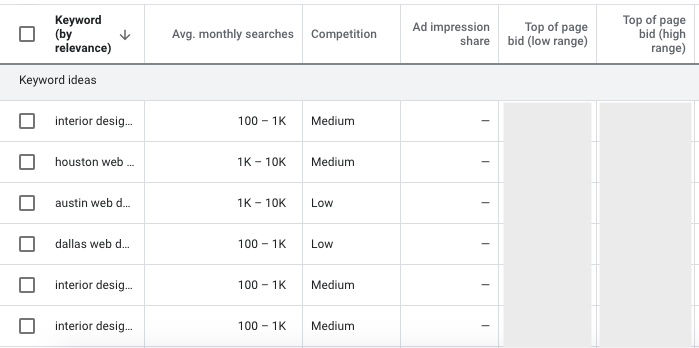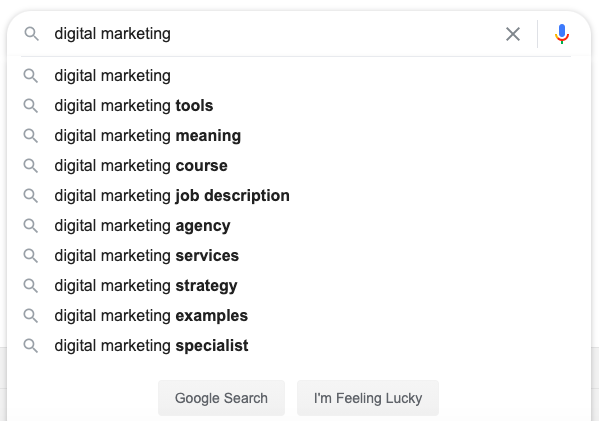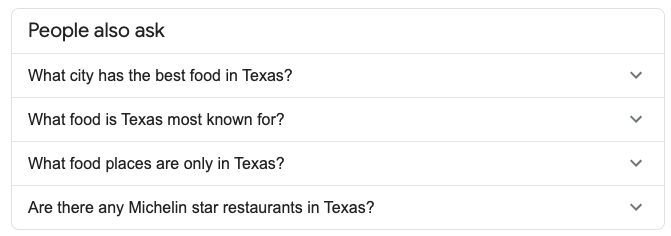How to Choose the Best Keywords to Optimize Your Content
 November 9, 2020 | By Ilfusion Team
November 9, 2020 | By Ilfusion Team
Choosing the right keywords is one of the most important steps to successfully optimize your content. However, it’s not as easy as it sounds because user behavior and preferences are constantly changing.
The bright side is that search engines are getting smarter, with the continuing development of semantic search and many other algorithm updates that make it easier for bots to understand search intent and keyword context.
How do you choose the best keywords to optimize your content? Here are 5 tips to help you get started:
1. Think like your intended reader
The first and most crucial step is to know who your target audience is. Aside from determining what topics are valuable to them and their needs, it’s equally important to think like your reader.
This means asking yourself how your intended reader will likely phrase their search query:
- What keywords will they likely use? List down keyword variations as well. For example, “best web developers in Texas” and “best website developers in TX.”
- What could be their search intent? For example, there’s a difference between “lavender for stress side effects” and “how to use lavender for stress.”
2. Identify what audiences are talking about
There is so much value in “listening in” to conversations, not just about your brand but also about your industry as a whole. By knowing what audiences are talking about, you will have a clearer idea of trending topics and how they phrase their queries.
Aside from social media (e.g., comments, hashtags, etc.), there are also other spaces you can look into:
- Blog comments: Take a look at your business blog’s comment section, as well as your competitors’ blogs. What questions are the readers asking? Do they have additional insights into the subject?
- Forums: Platforms like Quora and Reddit are good places to start to find common questions about a certain topic.
- Answer the Public: Answer the Public is a social listening tool where you input a keyword, then the tool generates common questions that people use for that keyword. It’s also segmented according to search intent (i.e., how, where, will, when, etc.).

Sample keyword phrase suggestions from Answer the Public
3. Use keyword research tools
There are several good keyword research tools you can use, such as:
- Ahrefs
- Google Adwords Keyword Planner
- SEMrush
- Ubersuggest
However, prior to using these tools, you must have a rough idea of what keywords you would like to target. Then, you can use the tools to refine your keyword research and choose the best ones for your content. A few tips:
- Target long-tail keywords: It’s always best practice to target long-tail keywords (i.e., those with at least 2 or 3 words) over short-tail keywords (i.e., single-word keywords).
- Take note of the search volume: There should be an existing demand for the keyword you’re targeting (i.e., average monthly searches). However, it’s best not to choose a keyword that has a high volume search and a high competition level.
- Mind the competition level: Choose keywords that have medium to low competition; it would be a challenge to rank higher on search engine results pages (SERPs) if the competition is too tight.

Sample search using Google Keyword Planner
4. Leverage Google Search Tools
Google Search has a suite of tools you can use to search for potential keywords—and they’re free!
- Google Suggest: All you need to do is to type keywords into the Google Search bar and see what additional keywords Google suggests.

The boldfaced texts are Google Search’s suggestions to your keyword
- People also ask: This section appears on the top part of the results page when you type in a question. This is a good way to find out commonly asked questions related to the search term you used.

Sample of “People also ask” results on Google Search
- Searches related to: This section appears at the bottom part of the results page and is a good resource when finding related keywords for your query.

Sample “searches related to” results on Google Search
5. Take note of trends
Google Trends is an excellent tool to use when searching for time-sensitive topics and analyzing trends. It also has separate sections for “related topics” and “related queries” that you can use for your keyword research.

Related topics and queries for “mobile SEO” using Google Trends
Optimize your content with a solid content marketing and SEO strategy
Choosing the right keywords is only one of the many facets of content marketing. And it can be quite overwhelming if your business is just starting out on its journey. If you need help with your SEO or with any of your content marketing needs, Ilfusion has the experience and the right people to help you.
Give us a call at 888-420-5115, or send us an email at cr******@******on.com to get started.
Filed in: Marketing, SEO

